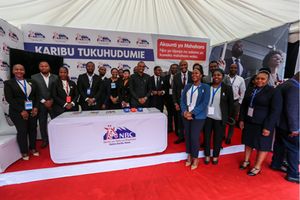MANAGING TAX RISKS: Of VAT disparities in East Africa
What you need to know:
- My article last week discoursed some of the reasons the domestic tax harmonization has been slow.
- A week earlier we deliberated on excise tax. Let’s now turn our attention to the value-added tax (VAT) in EAC.
This article continues the discussions on harmonisation of domestic taxes in the EAC. Harmonization of domestic taxes is crucial if the EAC common market dream is to become a reality.
My article last week discoursed some of the reasons the domestic tax harmonization has been slow.
A week earlier we deliberated on excise tax. Let’s now turn our attention to the value-added tax (VAT) in EAC.
Except for South Sudan (the newest EAC member), all other Partner States have a VAT system. South Sudan still operates a Sales Tax system which is not broad-based like the VAT. Kenya started its VAT in 1990, followed by Uganda (1996), Tanzania (1998), Rwanda (2001) and Burundi (2009).
But Tanzania, being a union of two countries, is unique. Tanzania has two separate jurisdictions each with its own VAT law and administration.
The VAT law applicable in Mainland Tanzania is administered by the Tanzania Revenue Authority (TRA) whilst the VAT law in Zanzibar is administered by the Zanzibar Revenue Board (ZRB).
This essentially means that VAT harmonization ought to consider the South Sudan and Tanzania peculiarities. n Broadly, all the VAT regimes in the EAC have similar key features and closely follow the destination principle. However, there are several important differences that may hamper free movement of goods, and services under the envisaged common market. This article focuses on VAT registration.
Operation of a VAT system requires some form of registration. Who should be registered for VAT is a key policy question. It directly affects the amount of tax revenue but also the effectiveness of tax administration.
The more persons are registered for VAT the more difficult the VAT administration becomes. Obviously, there is a host of other factors that determine VAT registration criteria.
VAT registration threshold: Across the EAC, registration is generally based on a threshold which is based on turn over.
But the registration thresholds differ. The current thresholds are as follows: Burundi, FBu 100 million ($57,000), Kenya, Ksh5 million ($50,000), Mainland Tanzani, Tsh100 million ($44,000), Uganda, Ush150 million ($40,000), Rwanda, RWF 20 million ($23,000) and Zanzibar, Tsh30 million ($13,000).
Group registration: Essentially a group registration allows two or more legal persons to be registered for VAT as a single taxable person with consolidated supplies.
So, if one member of the group is a Taxable person, other entities within the group whose turnovers are below the registration threshold will also be eligible from VAT registration.
Both, the Kenyan and Rwandan VAT laws allow for group registration albeit under special circumstances.
No provisions for group registration in Tanzania, Burundi and Uganda VAT laws.
Professional services: Providers of professional services in Tanzania Mainland are obliged to register for VAT regardless of their annual turnover.
Services providers such as lawyers, architects, engineers, auditors, tax consultants, and quantity surveyors would fall under this category.
Also, irrespective of whether the registration threshold is met or not, government entities or institutions carrying on economic activities are required to be registered for VAT.
There is no similar requirement under the VAT law in Zanzibar and the other EAC Partner States.
Voluntary registration: In Kenya, Uganda, and Rwanda, businesses whose turnover is less than the threshold can voluntarily apply for VAT registration.
In Tanzania, voluntary registration is limited to intending traders. Intending traders who expect to reach the registration threshold in a period of 12 months or half of the registration threshold in a period of six months can voluntarily register for VAT.




